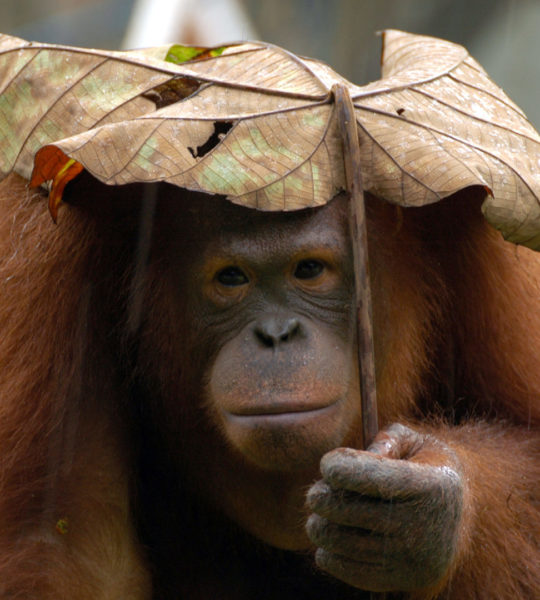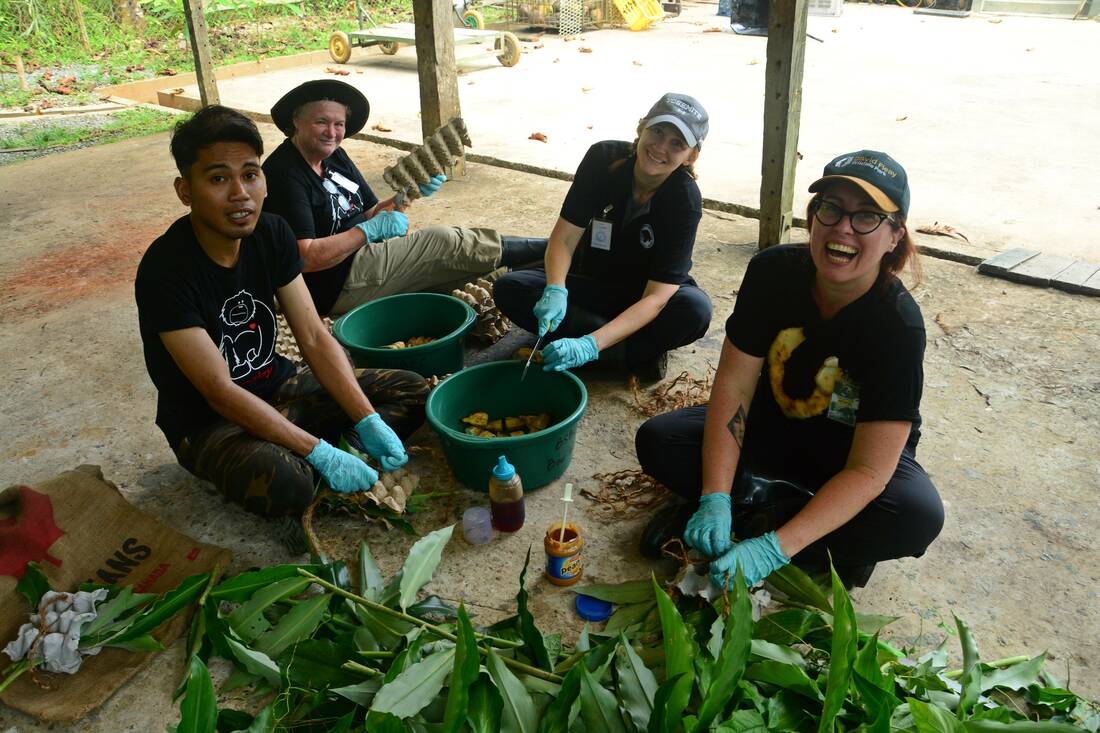BORNEAN ORANGUTAN

KEY FACTS Population Trend: Decreasing ↓
IUCN Status: Endangered
upto 104,700 individuals left in the wild
Scientific name: Pongo pygmaeus
Size: 1.2 – 1.5m
Found in: East Malaysia (Sabah, Sarawak)
Habitat: Primary tropical forest, old secondary forest, lowland dipterocarp forest, swamp peatland forest
Diet: Fruits, bark, leaves, flowers, and insects
Average number of infant: one
Average Life-expectancy in the wild: up to 45 years
DESCRIPTION
The Bornean Orangutan, also known as ‘person of the forest’ in the Malay language is one of the three known orangutan species native to the island of Borneo. They are the largest tree-living mammal in the world. Additionally, they are known to be highly intelligent, displaying tool use and distinctive culture in the wild.
Bornean orangutans have a distinctive body shape with coarse, long hair that can be orange, brown, or maroon. Also, they have powerful, long arms with grasping hands and feet for climbing and travelling through the forest canopy. Hence, Borneon orangutans spend most of their lives high in the treetops.
Additionally, the Bornean orangutan is generally a solitary animal, although they can come together to mate. Moreover, after birth, the infant stays with its mother until sexual maturity (12-15 yrs), solely depending on her for survival. Therefore, they have an extremely low reproductive rate. This means that their population can take a long time to recover from population decline or crashes.
At present, there are about 104,000 individuals left in the wild, but sharply declining. Once found in great numbers, this gentle, great ape now can only be found in fragmented, small numbers on the island of Borneo. Current threats to the surviving population include illegal logging, intentional forest fires for clearing land, illegal poaching and pet trade.

ORANGUTAN RESCUE IN BORNEO
VOLUNTEERING
Become a volunteer at the award-winning orangutan project at Matang Wildlife Rescue Centre in Sarawak on Borneo Island. The centre is set against the backdrop of the magnificent Kubah National Park, but this rainforest and surrounding areas are constantly under threat.
INTERNSHIPS
The internship for this project is Wildlife Rescue and Fundraising. You will be caring for rescued animals and also help with fundraising activities to improve the quality of life and well being of the rescued animals. The minimum stay is 3 months.



